
ITHS Impact
The purpose of the Institute of Translational Health Sciences (ITHS) is to further translational science — the area of health research focused on turning great ideas into reality.
A key aspect of this research is to “demonstrate impact” — to show how this work makes people healthier and improves lives. The purpose of this page is to illustrate some of the ways ITHS makes an impact.
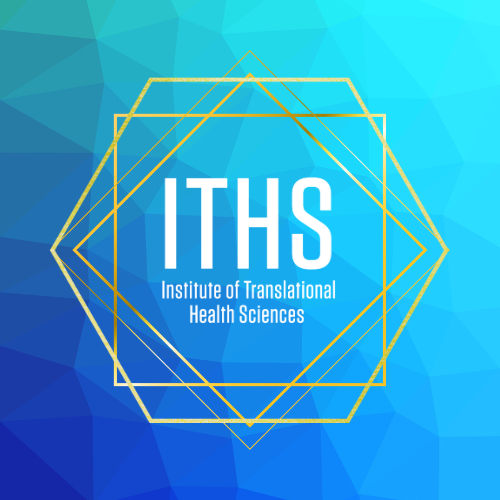
Storytelling:
To understand the myriad ways ITHS is supporting and accelerating translational science, ITHS interviews faculty, scholars and trainees about their roles, their research, and their core motivations, then produces written profiles about them. These profiles shine a light on the work being done across the institute, and breaks down silos between cores so people can understand the work happening around them and how their work fits into the whole.
Tools & Resources:
Our teams have created helpful resources by building tools for wider use. These tools have been adopted by a broad range of investigators as ITHS continues its work of improving the state of health research thoughout our region as well as across the nation.
Measurement:
To measure ITHS impact, we are examining our work using the Translational Science Benefits Model (TSBM), and producing detailed profiles to show the impact based on the benchmarks laid out in in that model.
Translational Science Benefits Model
The TSBM is intended to provide benchmarks to assess the impact of research that applies scientific findings to enhance public health and well-being.
The model identifies benefits of clinical and translational research in four areas:
- Clinical and Medical Benefits (Procedures & guidelines, Tools & products)
- Community and Public Health Benefits (Health activities & products, Health care characteristics, Health promotion)
- Economic Benefits (Commercial products, Financial savings & benefits)
- Policy and Legislative Benefits (Advisory activities, Policies & legislation)

A paper explaining the development of the framework was published September 8, 2017 in Clinical and Translational Science.
The profiles below were developed using The Translational Science Benefits Model and Translating for Impact Toolkit © 2017-2023, created by the Institute of Clinical and Translational Sciences at Washington University in St. Louis and available at translationalsciencebenefitsmodel.wustl.edu, is licensed under Attribution-NonCommercial-ShareAlike 4.0 International (CC BY-NC-SA 4.0).
ITHS TSBM Impact Profiles
The Helminth-Altered Gut Microbiome Project
Investigating parasitic worm infections and how their effect on the gut microbiome reduces the development of asthma. Read more…

The Family Care Project: A Collaboration between Mother Africa and the UW READI Lab
Supporting culturally and linguistically diverse communities during the early years of an autistic child’s life to improve child and caregiver outcomes. Read more…

Six Building Blocks for Improving Opioid Medication Management in Primary Care
A team-based approach for managing long-term opioid therapy. Read more…

Other Impact Stories
In these interviews and profiles, you’ll meet more of the researchers, faculty and staff of ITHS and learn about how they’re moving health research forward.
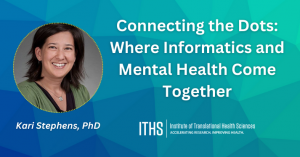
ITHS Profile: Kari A. Stephens, PhD
Dr. Kari A. Stephens, a longtime faculty contributor to our community engagement program, discusses how her multidisciplinary background provides a unique lens through which she approaches her work, merging the realms of informatics and mental health care. Read more…
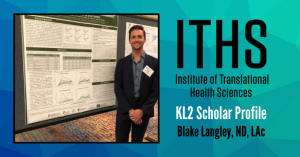
ITHS KL2 Profile: Blake Langely, ND, LAc
Blake Langley, ND, LAc, spoke to us about his focus on integrative oncology, the acupressure research he’s most passionate about, and what challenges he expects to face in his journey. Read more…
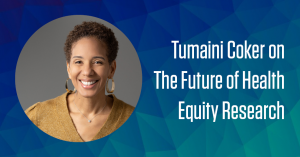
ITHS Interview Profile: Dr. Tumaini Coker on the Future of Health Equity Research
Dr. Tumaini Coker discusses her academic and professional journey in the field of pediatrics, the importance of health equity research, and the probable future trajectory of health equity research. Read more…
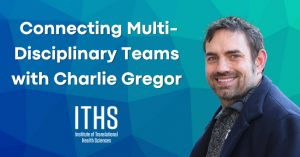
ITHS Interview Profile: Connecting Multi-Disciplinary Teams with Charlie Gregor
We spoke to Charlie Gregor about his work as manager of the ITHS Hub Liaison Team, a multidisciplinary team of subject matter experts spread across the multiple research and research support groups at University of Washington and Seattle Children’s Hospital. Read more…
Find more profiles of ITHS people and programs on the ITHS stories page.
Longterm Impact
The impact of ITHS goes beyond single projects. Here are some examples of resources our teams have built. These tools have been adopted by a broad range of investigators as ITHS continues its work of improving the state of health research thoughout our region as well as across the nation.
Leaf
ITHS developed the Leaf tool to enhance data access and support clinical research. Leaf provides a user-friendly interface that allows researchers to easily scan electronic medical record data sets from UW Medicine. This tool aids in patient cohort identification, feasibility studies, and generating essential reports for clinical research.
Leaf enables investigators to access demographic data, cohort identification criteria, departmental statistics, data visualization, and both identified and de-identified data. This streamlined access allows researchers to frame research questions better, meet recruitment goals, and conduct retrospective reviews without requiring advanced SQL skills or extensive data querying experience.
Additionally, ITHS has integrated Leaf with other research support tools like REDCap. This integration allows users to combine patient-reported outcomes from REDCap with clinical data from Leaf, facilitating more comprehensive data analysis and project planning. Researchers can import data from REDCap to Leaf and vice versa, enhancing their ability to conduct detailed and insightful studies.
For more detailed information, you can visit the ITHS website’s pages on Leaf and REDCap.
Data QUEST
ITHS has adopted Data QUEST as a tool to facilitate research using electronic health record (EHR) data from community-based primary care practices. This initiative enables researchers to access and analyze datasets from diverse and widespread populations, covering over 125,000 patients across Washington and Idaho.
Data QUEST supports researchers by providing a structured process for EHR data extraction, addressing common challenges such as the data being originally collected for clinical care rather than research. The ITHS Data QUEST Coordinating Center helps researchers understand the context of the data, maintain governance structures, and define parameters for data extraction, ensuring that data is used appropriately and effectively for research purposes.
Additionally, Data QUEST includes tools like FindIT, a data dictionary and profiling tool, to help researchers explore the types of data available within the network. The infrastructure and support provided by ITHS enable researchers to conduct studies that can improve healthcare outcomes and advance medical knowledge.
For more detailed information, you can visit the Data QUEST website.






